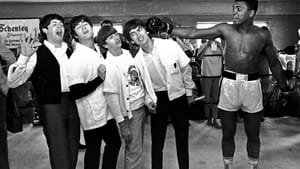Stay in the Loop
BSR publishes on a weekly schedule, with an email newsletter every Wednesday and Thursday morning. There’s no paywall, and subscribing is always free.
Trump and Cruz: Stranger than fiction
The age of the antihero

In James Thurber’s satirical 1931 short story, “The Greatest Man in the World,” an obscure pilot named Jack Smurch circles the globe in a tiny monoplane, becoming an international hero while still airborne. When he finally lands in New York, government officials discover to their dismay that the heroic Smurch is actually a nasty, vulgar, leering money-grubber, and a drunk to boot. Rather than smash the illusions of Smurch’s global admirers, the president of the United States arranges for Smurch to be pushed out of a ninth-story window during a reception in his honor and then buried with an elaborate state funeral.
Thurber’s story presumed that Americans couldn’t bear to discover that their heroes aren’t gentlemen. Of course the rise of the reckless and uncouth Senator Joe (never “Joseph”) McCarthy in the 1950s shot that theory all to hell. Subsequently, movie actors like Marlon Brando, Robert De Niro, and Al Pacino built successful careers portraying obnoxious characters (and sometimes behaving obnoxiously in real life). Insufferable athletes like Pete Rose and John McEnroe remained popular long after retirement despite their lack of redeeming nonathletic virtues. And now the two most abrasive Republican candidates — Donald Trump and Ted Cruz — are ranked Nos. 1 and 2 in the Republican presidential polls.
Overgrown adolescents
During the 1964 presidential campaign, when Lyndon Johnson swamped the Republican Barry Goldwater, I heard Richard Nixon attempt to cheer up the GOP faithful in the face of huge crowds attending LBJ’s rallies. “The Beatles draw big crowds, too,” Nixon said. “But that doesn’t mean we’re going to put Ringo in the White House!”
That seemed inarguable at the time. Today it seems necessary to point out that the Beatles’ drummer Ringo Starr did possess a few redeeming virtues — musical talent, boyish charm, a puckish sense of humor, and the wisdom not to run for public office — and that candidates with even fewer political credentials and no charm whatever are now seriously being considered for the White House.
We live in an age when Democrats and Republicans alike routinely elect perpetual adolescents to high public office: think Bill Clinton, Newt Gingrich, Rick Santorum, Ed Rendell, George W. Bush. As Clinton supposedly once observed, “I was 16 when I was born, and I’ll always be 16.” Some of these overgrown fraternity boys actually did a decent job. Today it’s no coincidence that the only two grown-ups among the ten leading Republican presidential candidates — John Kasich and Jeb Bush — are also the least entertaining and currently enjoy between them barely 10 percent support in the polls.
Jack Smurch was pushed out of a window because he was deemed insufficiently respectable for the public taste; in the age of the antihero, we could wake up one day with a president who pushes respectable people out of windows to accommodate the public thirst for entertainment.
My execution list
But to get back to Trump. . . .
The other day, while riffling through my old files, I came across a satirical column I wrote in 1991. In light of then-recent Supreme Court rulings that encouraged the death penalty in order to deter criminals and serve what Justice Antonin Scalia called the community’s cathartic need for retribution, I said, I had reexamined my position on capital punishment.
“The trouble with capital punishment,” I wrote, “isn’t execution per se but whom we’ve been executing. . . .If we’re going to revive the death penalty, let’s achieve maximal impact by applying it to high-profile candidates.” I proceeded to suggest nine such prospects, led by Richard Nixon. (“It’s not just that he never admitted obstructing justice in the Watergate episode. It’s that he’s still obstructing the search for truth today.”) Next on the list was guess-who:
“Donald Trump. Unlike Nixon, Trump never exercised public authority, but he insists on monopolizing our attention anyway. For more than ten years Trump has manipulated the media to create the illusion that he’s rich, thus convincing gullible banks and bondholders to pay for his yachts, mansions, and mistresses. Chase Manhattan and Citibank, for example, lent Trump $290 million and $990 million respectively without ever conducting an audit of his finances. To be sure, the media and the bankers are to blame for swallowing Trump’s act, but what communal catharsis is there in executing some faceless banker or reporter? In the new spirit of the times, I say: They who live by the high profile must die by it.”
Folks, that was nearly a quarter-century ago. And isn’t it a shame that nobody took my advice?
Sign up for our newsletter
All of the week's new articles, all in one place. Sign up for the free weekly BSR newsletters, and don't miss a conversation.

 Dan Rottenberg
Dan Rottenberg